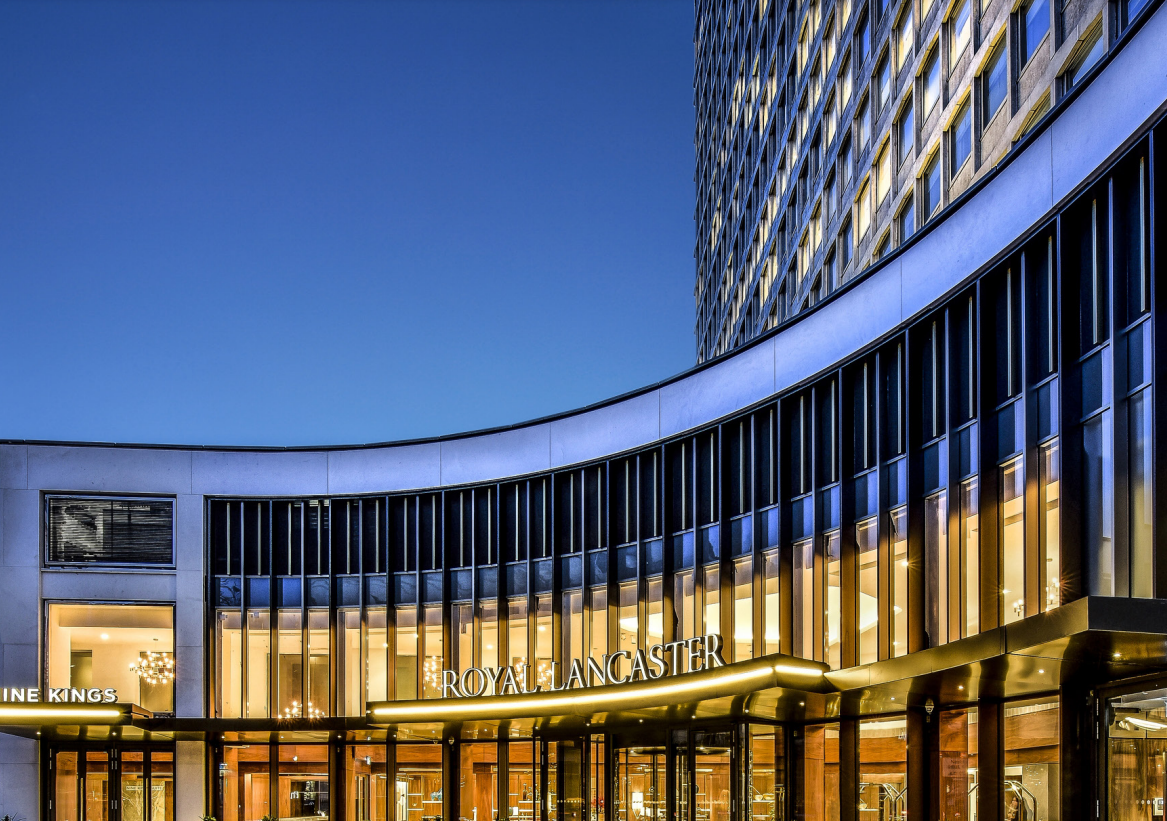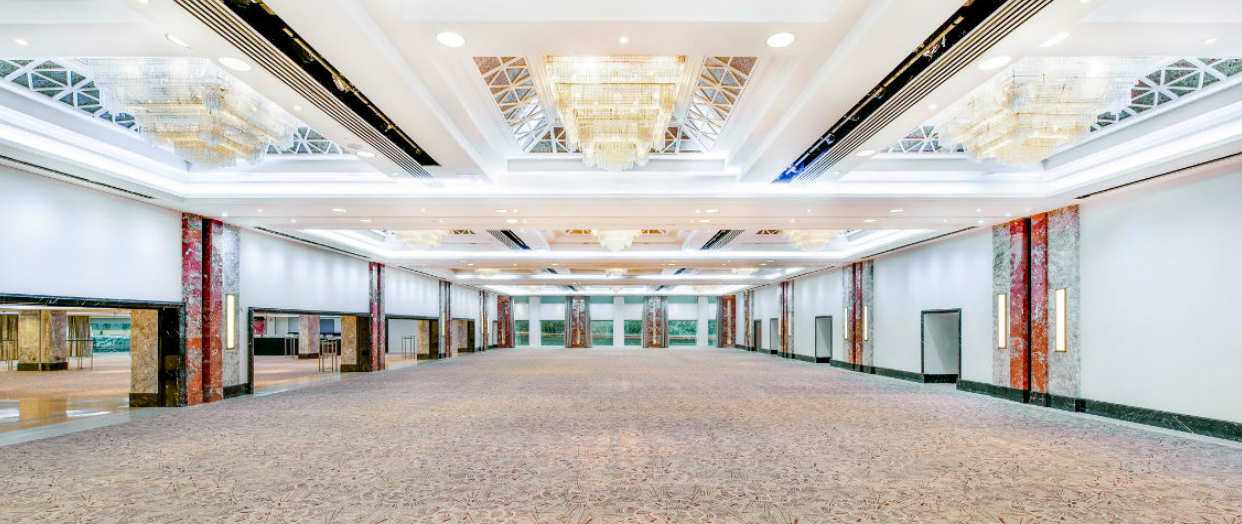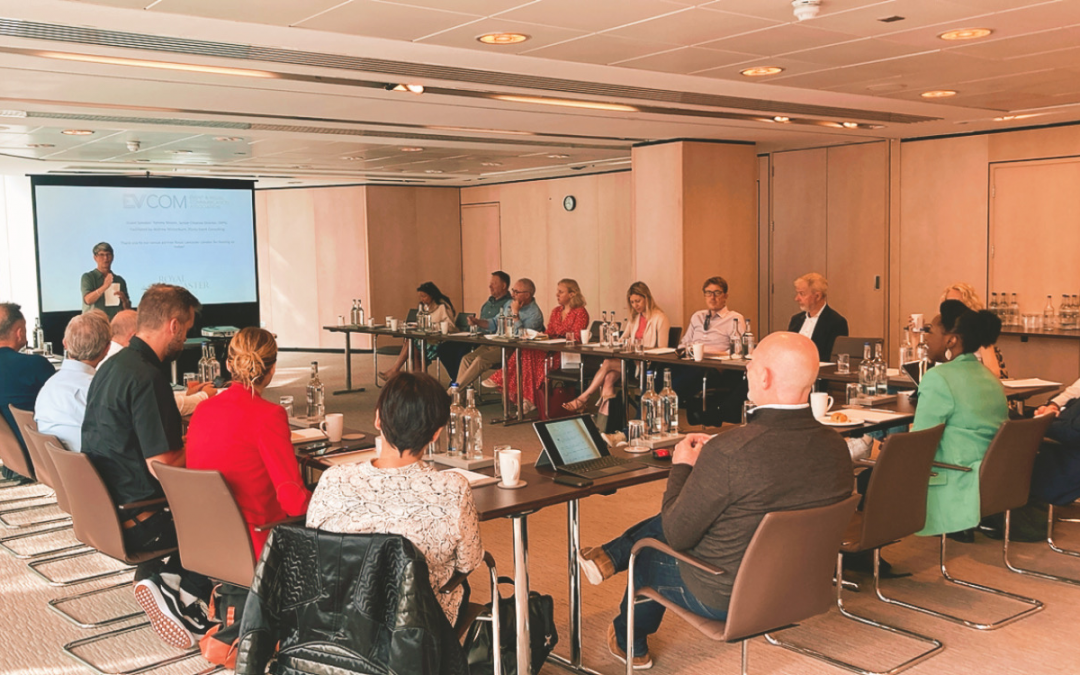 Last week we gathered Senior Leaders from across our membership at the Royal Lancaster London to discuss AI, industry concerns around it and its possibilities!
Last week we gathered Senior Leaders from across our membership at the Royal Lancaster London to discuss AI, industry concerns around it and its possibilities!
Following a delicious breakfast and some early morning networking, our guests sat down to hear from Sally Beck who shared some of the history of the Royal Lancaster London up to its recent stunning refurbishment.
Claire Fennelow, EVCOM’s Executive Director, then introduced Tommy Moore (Senior Creative Director, DRPG) who spoke to our audience about how to use AI well, wisely and within the realms of the law, ethics and creativity at this early stage of its development.
At DRPG they use AI most at the pitching and presentation stage. “Very rarely would you use AI for the finished product,” he said, discussing the risks of seven fingered people and mismatched earrings. But it allows them to make quick changes without wasting a designers time.
When it comes to getting ahead of this new technology, Tommy encouraged agency leaders and team members to start playing with it and learning the associated skills. “Have a kickabout with AI,” he encouraged our audience. He advocated for learning “AI syntax” so that you can use generative AI platforms successfully, as well as upskilling on spotting the anomalies/ issues in AI generated imagery. Lots of the platforms out there are quite different at the moment, so do a bit of research and then choose one and start to build your skillset.
Can AI be creative? “Not really – it cannot make, it can only aggregate,” said Tommy. “But we can use it to our own creative ends.” He recommended training designers and copywriters to be AI proficient so that they can use it as a tool.
Tommy also discussed the data risks around AI. Generative AI pulls from images and words without consent, and without telling you how much is borrowed. So you could end up unintentionally breaching copyright laws, especially as the current laws are varied internationally. Equally, you could end having your own work unintentionally pulled from by competitors using AI, so Tommy recommended being careful with what you put online and watermarking more vigorously than you might have before. “AI is the anti-Christ of GDPR,” he said.
Something that agencies will need to navigate is the client relationship to AI. Some agencies are coming up against clients who think they can use AI themselves and therefore don’t need agencies. For this reason, it’s important to ahead of clients in terms of literacy and utilisation of AI in the same filmmakers have had to with UGC and the greater availability of cameras.
Accessibility was also a topic of conversation. AI could mean wonderful things for accessibility – a person who doesn’t have the physical capability to draw something can design the image they have inside their head, for example. However as one of our attendees pointed out, if AI is pulling from sources which are racist, ableist, transphobic and so on, what they produce will have the same issues. Technology is not neutral.
Guests chimed in throughout the session, in an open forum facilitated by Andrew Winterburn (3Sixty Event Consulting). They shared their concerns around the dilution of creativity, the impact it would have on the roles of designers and copywriters in the industry and beyond, and potential to steal/ be stolen from unintentionally.
Those who are already testing the waters, shared where they are currently using it: pitching, idea generation, chat GPT for marketing purposes, using AI to help with AI training, within technology platforms, for output eg if a client has given you a landscape image you can use AI to make it portrait. And lots of attendees were hopeful.
One said, “No idea is a new idea anyway, and this is an evolution of that. AI needs to pull from things so we still need to create new things it can pull from.”
And another followed up, “When powerpoint came out, we were worried we wouldn’t need designers anymore. So we raised the standards. When phones came out, we were worried anyone could make a movie. So we raised the standards of film.”
It was a fascinating session. Thank you so much to Tommy for sharing his expertise and our member for sharing their experience and advice.
The Royal Lancaster London team then offered us a show round of the hotel’s event spaces, including their beautiful, chandelier-clad ballroom spaces, perfect for awards ceremonies and conferences and their innovative unique virtual and hybrid event studio.
And now, we would like to hear from you. We want to know whether our members are using AI, whether you are planning to use AI in the near future, and what concerns and excites you about it.

The Ballroom at the Royal Lancaster London


